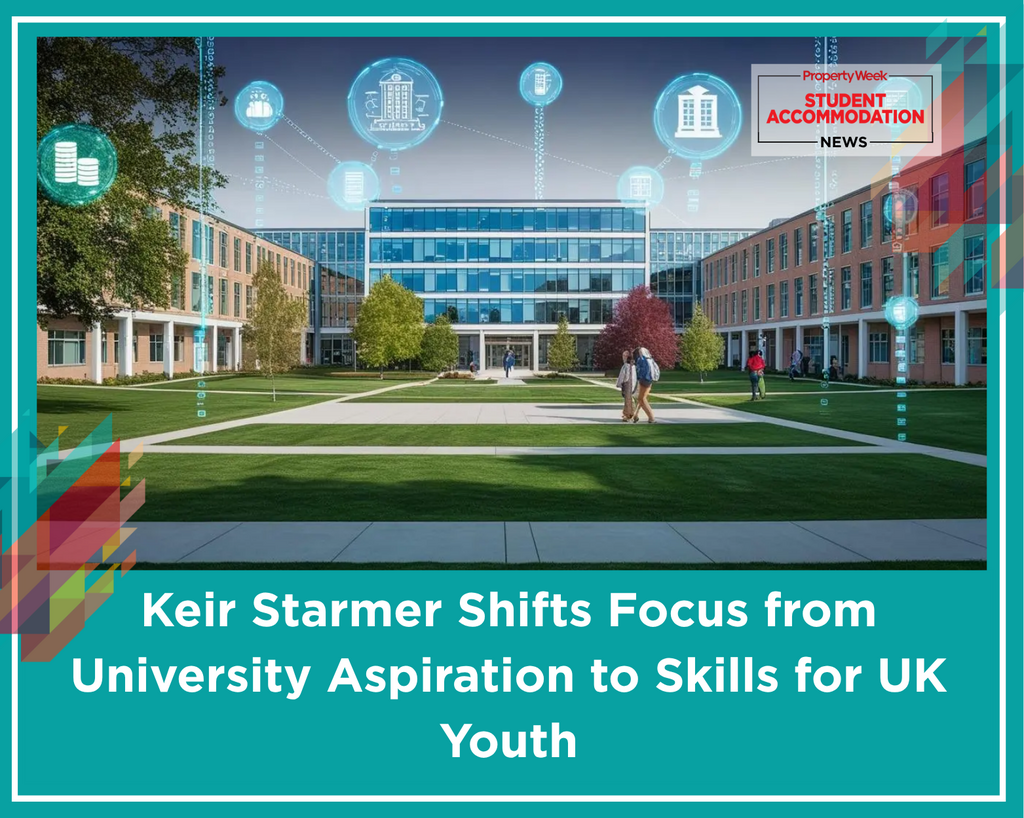
Keir Starmer Shifts Focus from University Aspiration to Skills for UK Youth
UK: Keir Starmer has announced a major overhaul of UK youth education priorities, aiming for two-thirds of young people to attain higher-level skills by 2040, moving away from the traditional university-centric approach towards a broader, skills-focused strategy.
Keir Starmer has officially marked the end of the ambition set by Tony Blair in 1999 for half of the nation’s young people to attend university, replacing it with a broader and more skill-focused target. At the recent Labour conference, Starmer set out a new pledge that two-thirds of young people will achieve higher-level skills by the age of 25. This will include not only university education but also further education and "gold-standard" apprenticeships, significantly raising the target to 67% from Blair’s original 50%. The shift reflects growing recognition that the university pathway, long dominant in the UK, has often overshadowed vocational education and training.
Successive governments, including those under Rishi Sunak and Gavin Williamson, have criticised the old focus on university attendance as neglectful of vocational routes that better align with labour market needs. Starmer echoed these concerns, highlighting that the previous emphasis on universities delivered limited parity of esteem for vocational education and did not adequately prepare young people for the workforce. However, as numerous experts and policymakers have acknowledged, simply advocating for vocational education has not sufficed to change its perception or attractiveness among parents and students, partly because of entrenched attitudes and the relative scarcity of funding and opportunities compared to universities.
Starmer’s announcement provides a step-change, promising a more integrated post-18 education system through an upcoming skills white paper. This will reportedly introduce a unified regulator and funding model for further education, potentially upgrading some colleges to polytechnic status with new qualification-awarding powers. A key component of the Labour leader’s plan is ensuring parity in student financing across higher education and higher-level further education, which could mean that further education students receive tuition fees and maintenance support comparable to university students. This shift may help elevate the status and accessibility of further education for many young people who currently see university as the default.
The government plans to inject nearly £800 million in additional funding for 16-19 education by the next financial year, including establishing 14 new "technical excellence" colleges. These will join 15 similar institutions focusing on sectors such as construction and defence already announced. College principals have welcomed this investment, but questions remain about how effectively the reforms will be implemented across the devolved administrations of Scotland, Wales, and Northern Ireland, where education policy is controlled separately from Westminster. Starmer’s reference to “young people across the UK” attracted some criticism for overlooking these complexities.
Existing data suggests Starmer’s target of 67% by 2040 is ambitious but achievable. Currently, about half of young people attend higher education by age 25, with nearly 900,000 also participating in further education and approximately 147,000 engaged in apprenticeships through colleges. By broadening the definition of “higher-level skills” beyond university degrees to include vocational training and apprenticeships, the government aims to better align education outcomes with labour market demands, reduce youth unemployment, and provide more diverse pathways to success.
Complementing the skills agenda, the government has proposed new measures to tackle youth unemployment directly, including a policy announced by Finance Minister Rachel Reeves offering paid work opportunities to young people on Universal Credit who have been out of education or employment for 18 months or more. This is part of a wider effort to enhance economic inclusion alongside educational reform.
While Starmer’s efforts to pivot away from the Blair-era university target may resonate with a broader cross-section of young people and employers, achieving genuine parity of esteem between academic and vocational education will require sustained investment, cultural change, and coordinated policy execution, especially given the fractured governance landscape across the UK. The announcement is a clear indication of Labour’s commitment to reshaping the post-18 education landscape, but the details of how these reforms will be realised will be crucial in determining their success. To find out more about how these policy changes will impact the student accommodation market, join us at Wembley Stadium to hear Rt Hon Justine Greening MP share her thoughts in our opening keynote.

